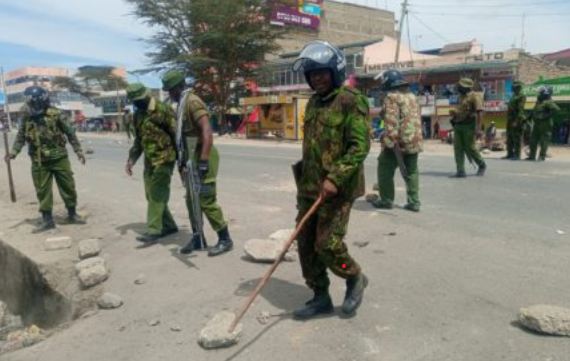Migori Senator Eddy Oketch has dismissed Wednesday’s court orders instructing the police not to conceal their identities or use unmarked vehicles during demonstrations. The High Court directed the Inspector General of Police to ensure that officers wear name tags and display their service numbers as part of their uniforms, following public outcry over police conduct during recent deadly anti-government protests.
However, Senator Oketch referred to the court’s ruling as “pseudo-unmasking,” arguing that it will not improve accountability within the police force.
In an appearance on Citizen TV’s Daybreak program on Thursday, he emphasized that the real concern lies with the political powers that allow the police to act freely, as demonstrated during the protests when they covered their faces, patrolled the streets, and arrested demonstrators, forcing them into unmarked vehicles.
“This is an attempt to mask the police but it is pseudo-unmasking; it is not proper unmasking. Proper unmasking is removing the political mask that allows some of the policemen to operate this way,” Oketch said.
“What we are seeing during the protests is some policemen allowed by political masks and lawful structures to do this kind of thing.”
The senator added: “There are particular instances where police would be forced to use unmarked vehicles or hidden identity but to the extent that they are lawful.”
Wednesday’s court orders were issued following an urgent application by the Law Society of Kenya (LSK), which argued that the police and their agents have been undermining accountability within the National Police Service. The police have faced significant criticism for their use of excessive force and violence against Kenyans during the recent anti-government protests.
Key concerns include the police opening fire on unarmed citizens, making forceful arrests, and allegedly orchestrating the abduction of outspoken individuals involved in the demonstrations, actions seen as efforts to suppress dissent against President William Ruto’s administration.
Data from the Kenya National Commission on Human Rights (KNCHR), a government watchdog, indicates that 66 protesters were reported missing and at least 60 others were killed during the protests as of July 25. However, human rights organizations assert that the actual figures are significantly higher.



